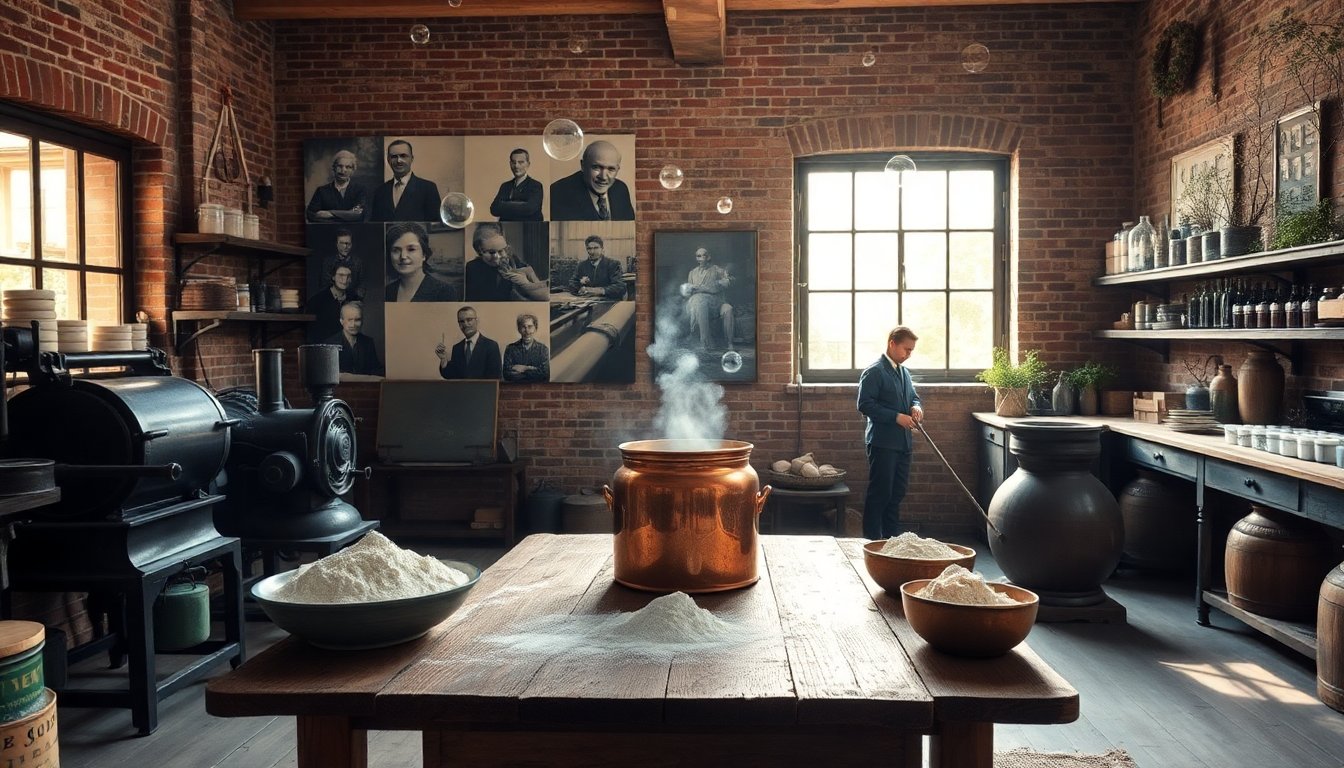Table of Contents
The documentary film Kingdom of Soap Bubbles, directed by Czech filmmaker Tatana Markova, explores the fascinating history of the Schicht family, a dynasty once prominent in the Czech Republic. Drawing on narratives from Constantin Werner, a descendant of the family, Markova delves into the legacy of this renowned soap empire.
The Schicht name was well-known in the early 20th century, extending its influence beyond the borders of present-day Czech Republic and Slovakia. Their ascent paralleled the decline of the Habsburg Empire, largely attributed to the innovative entrepreneur Georg Schicht. He founded a soap factory in the town of Rynoltice, which became a foundation for the family’s wealth and power.
The rise of an industrial giant
Under the leadership of Georg Schicht, the company experienced significant growth through the introduction of innovative products such as Elida cosmetics and Kalodont toothpaste. The brand’s success was driven by effective marketing strategies, which included the use of a charming billboard model and engaging silent film advertisements. These initiatives helped establish the Schicht brand as accessible, affordable, and hygienic, securing its status as a household name.
One notable product was the “soap with the stag,” which featured a distinctive leaping deer logo. By the early 1900s, this product had become as recognizable as contemporary brands like Apple or Starbucks. However, as with many compelling narratives, the Schicht family’s story faced challenges as historical events unfolded.
The challenges of changing times
Markova began her documentary project in 2019, coinciding with the onset of the COVID-19 pandemic. She encountered several challenges, particularly the geographical dispersion of the Schicht descendants, who now live worldwide and struggle to return to their ancestral homeland. Despite these difficulties, Markova remained determined to capture the essence of the family’s story within the walls of their historic residence in Ústí nad Labem, previously known as Aussig.
The facts
The film illustrates the significant historical events that shaped the Schicht family. The establishment of Czechoslovakia after World War I severely impacted their business, triggering a linguistic and cultural conflict. The gradual phasing out of the German language led to growing resentment towards non-Slavic entities.
The Schicht family faced numerous challenges as they adapted to a changing environment. They merged with Unilever, explored cinema ventures, and even took part in airplane races. However, the threat of World War II was imminent, particularly due to their factory’s location in Sudetenland. This proximity subjected them to intense pressure from the Nazi regime, which required the Schicht company to validate its Aryan credentials.
The aftermath and recovery
After the war, the Schicht family experienced severe repercussions. Ethnic Germans faced widespread expulsion from Czechoslovakia, leading to rampant asset confiscation. According to Markova, the collective guilt associated with the war affected the entire family, resulting in the loss of their properties. This occurred despite Georg Schicht’s British citizenship and his sons’ service in the British military.
With the onset of Soviet governance, successful businesspeople such as the Schicht family faced significant backlash. This culminated in the nationalization of their factory, which was rebranded as Setuza. The restitution process post-Velvet Revolution in 1989 largely overlooked those who lost property due to the post-war Benes decrees, leaving the Schicht family with no avenues for recovery.
The facts
After World War II, the Schicht family sought new opportunities in several cities, including London, Zurich, and Brazil. Their efforts led to enough success to reclaim their former estate in Ústí nad Labem. They plan to restore the villa and make it accessible to the public, symbolizing their enduring legacy.
Reactions
The family’s initiative to restore the villa has drawn interest from the local community and historians alike. Many view this effort as a vital connection to the region’s industrial history and a way to honor the family’s contributions.
Markova highlights the enduring legacy of the Schicht family in Ústí nad Labem, known for their commitment to social responsibility. Their investments in local initiatives, including housing projects and recreational facilities, have significantly impacted the community. In 2006, Johann Schicht, a key family figure, was recognized as the most important citizen of Aussig in the last 150 years, reflecting the local appreciation for their contributions.
According to Markova, while a once-prominent name may fade, the principles of philanthropy and social responsibility can endure through generations. The family’s efforts to restore their ancestral home demonstrate a deep respect for their heritage and a dedication to preserving an essential chapter of Czech history.


